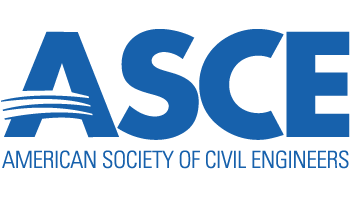
The International Coalition for Sustainable Infrastructure focuses on growth and COP26 at its first anniversary
RESTON, Va. – One year ago, global leaders from mayors to civil engineers and engineering organizations joined forces to identify the biggest barriers to infrastructure adaptation and resilience, and to understand how the engineering community could act as a catalyst for action, which came to fruition as the International Coalition for Sustainable Infrastructure (ICSI). Leaders from across the country came together again virtually this year due to the COVID-19 global pandemic. The symposium highlighted the consensus that engineers are uniquely placed to shape our collective future.
ICSI founding organizations include the American Society of Civil Engineers (ASCE), ASCE Foundation, The Resilience Shift, WSP, and the Global Covenant of Mayors for Climate & Energy (GCoM). A representative from each organization spoke to the four action tracks: funding and financing; innovation; leadership and whole-of-life costs; and guidance, tools, and standards. ASCE’s Chief Innovation Officer Jerry Buckwalter spoke on the Innovation track, which aims to accelerate innovative ideas that improve sustainable design/performance and infrastructure resilience through provoking new ideas and looking for disruptive effects; thinking deeply about future trends – guided by research, and putting ideas into practice (through testable pilot projects, etc.). One ongoing activity of this action track is ASCE’s Future World Vision future trends and scenarios research.
The future depends on resilient infrastructure and civil engineers are thinking now about building infrastructure that will last for 50-100 years, or more, and ensuring infrastructure is more resilient and unstainable as we plan for the future with new technologies, approaches, and materials. This Coalition is helping to put these plans into action.
The Coalition has seen shown growth in its first year, with new organizations joining in on the call. Institution of Civil Engineers (ICE) President Rachel Skinner announced at her presidential address that the Institution of Civil Engineers (ICE) has joined the Coalition, putting engineers at the heart of climate action and building resilience. Skinner walked ICSI symposium attendees through why she made the role of engineers to achieve net-zero the singular focus of her presidency. In that spirit, ICE has also appointed Seth Schultz, Resilience Shift Executive Director and ICSI Board Member, to lead its 13th Brunel International Lecture Series that kicks off with a global virtual tour starting December 2, 2020. His lectures will highlight the need for engineers to step up to face the challenges of our world, in particular to deliver on climate action, in addition to building a safe, sustainable, and resilient future.
ICSI has declared its intention to contribute to the transformational change we need through action. Keynotes from the COP26 High-Level Climate Champions Gonzalo Muñoz, Chile, and Nigel Topping, UK, emphasized the importance of engineers in delivering the changes needed to achieve the targets set by the Paris Agreement.
Speaking at the time of the ongoing ‘Race to Zero Dialogues’ organized by the United Nations Framework Convention on Climate Change (UNFCCC), the High-Level Champions said ICSI was uniquely placed to create net-zero and climate resilience as engineers are natural problem solvers. Topping and Munoz also agreed there was a need for engineers to avoid letting a risk-adverse mindset hamper innovation, stressing ICSI should call for even more ambitious targets. Summing up the motivation for change, High-Level Champion Nigel Topping stated, “people need to be inspired – they are creating an exciting future they can be proud of and it is engineers who will build that”.
Ensuring resilience and sustainability is a cornerstone of every decision on the infrastructure lifecycle in every community around the globe, the ICSI mission is even more pertinent with infrastructure investment a priority for governments around the world.
Meredith Adler, Executive Director of Student Energy also joined the founding organizations and other keynotes, highlighting how building globally diverse intergenerational coalitions is key to addressing the energy and climate challenge.
In the run up to COP26 in November 2021, the next year will provide opportunities to continue to build ICSI’s reach, adding strength to the Coalition and delivering on the strong potential of its current and new action tracks. ICSI can build off a strong first year to deliver on its mission to make resilience and sustainability a cornerstone of every decision in the infrastructure lifecycle in every community around the globe.
For more information on the Action Tracks and the Coalition, go to https://sustainability-coalition.org/.
ABOUT THE AMERICAN SOCIETY OF CIVIL ENGINEERS
Founded in 1852, the American Society of Civil Engineers represents more than 150,000 civil engineers worldwide and is America’s oldest national engineering society. ASCE works to raise awareness of the need to maintain and modernize the nation’s infrastructure using sustainable and resilient practices, advocates for increasing and optimizing investment in infrastructure, and improve engineering knowledge and competency. For more information, visit www.asce.org or www.infrastructurereportcard.org and follow us on Twitter, @ASCETweets and @ASCEGovRel.